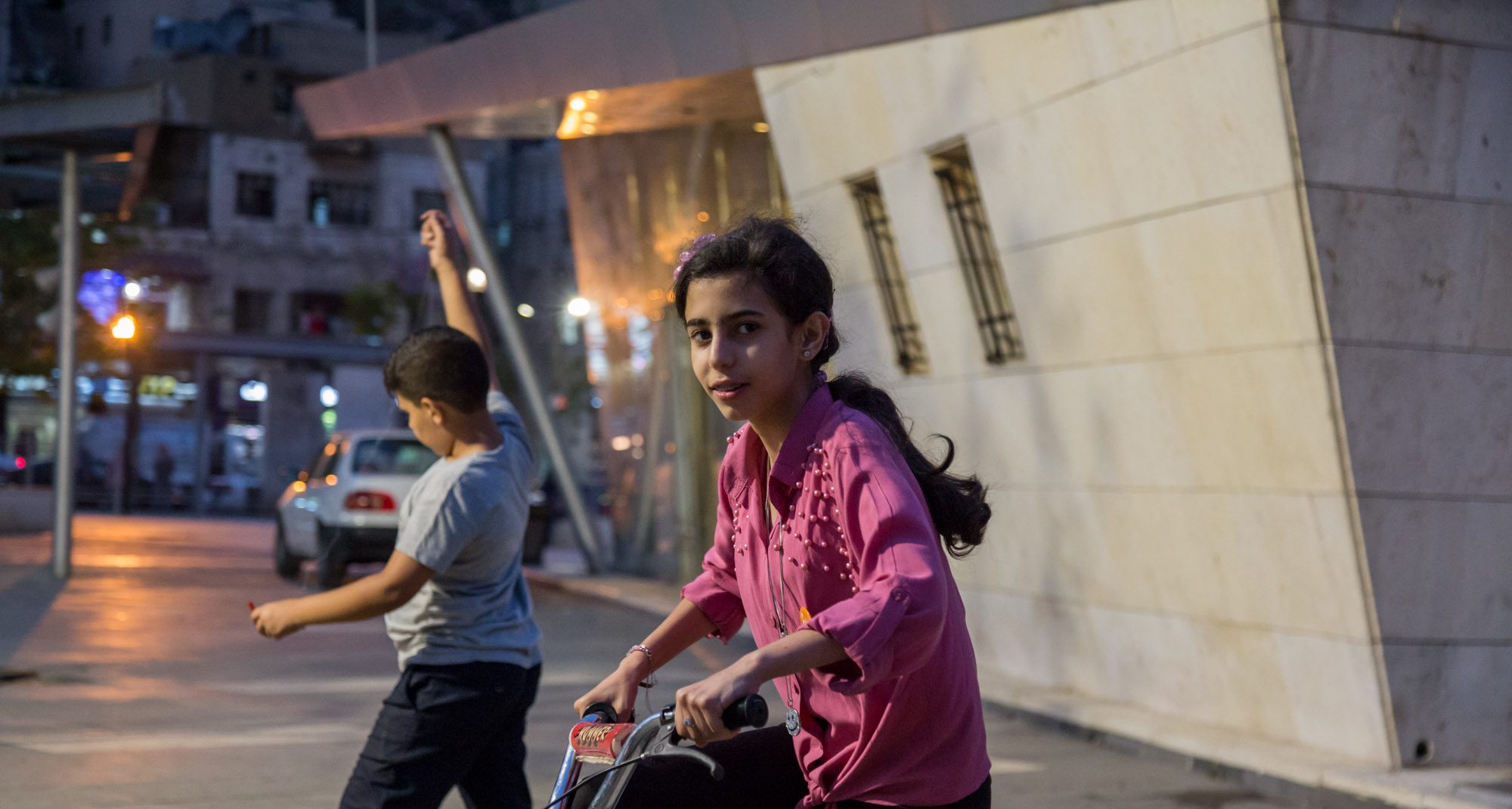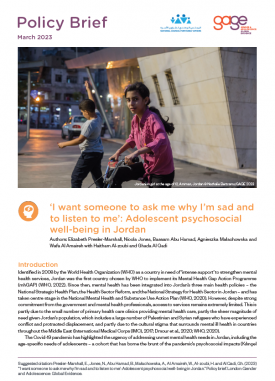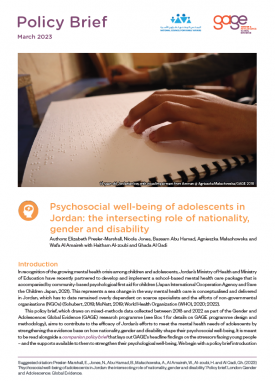The National Council for Family Affairs in partnership with the Gender and Adolescence: Global Evidence Programme (GAGE) launched two policy papers on Adolescent psychosocial well-being in Jordan and the intersecting role of nationality, gender and disability (in English and Arabic).
In 2008, the World Health Organization (WHO) recognized Jordan as a country in need of ‘intense support’ to strengthen mental health services. Jordan was the first country chosen by WHO to implement its Mental Health Gap Action Programme (mhGAP) and since then it has integrated mental health into the health sector’s major strategies and plans. However, despite strong commitment from the Jordanian government and mental health professionals, evidence generated by GAGE shows that mental health problems are high among adolescents, an age group when many mental health disorders first emerge, and that access to services remains extremely limited. GAGE follows a large diverse sample in Jordan (approx. 4,000 adolescents), comprised of girls and boys (10-19 years old) from vulnerable Jordanian communities and refugees who live either in Jordanian host communities, formal refugee camps or informal tented settlements.
The research findings presented during the event will support policy and programme actors to more effectively reach adolescent girls and boys to advance their wellbeing.
Aims:
The launch event aims to share mixed-methods research findings and highlight deprivations faced by adolescents from vulnerable communities in Jordan and facilitate a discussion on how to address key determinants for mental wellbeing in order to help young people thrive.
- To understand what the evidence says: what are some of the key challenges faced by adolescents in Jordan and what are the findings teaching us? What does these mean for policy and programming priorities?
- To examine what possible policy and programming responses might look like – how policy makers and practitioners can act to ensure that their efforts directly contribute to the international Leave No One Behind agenda.


